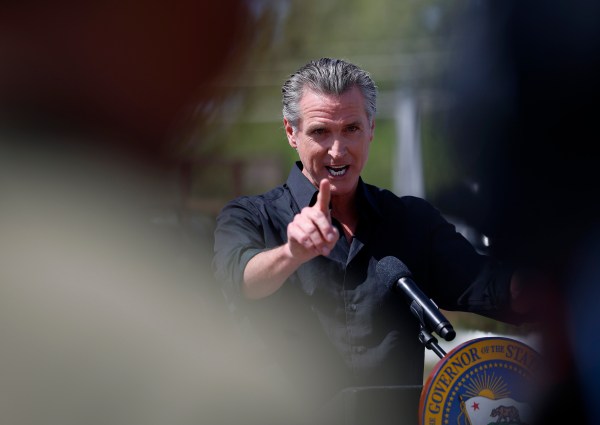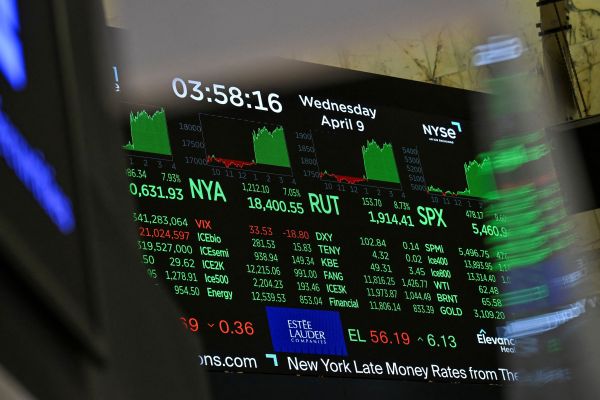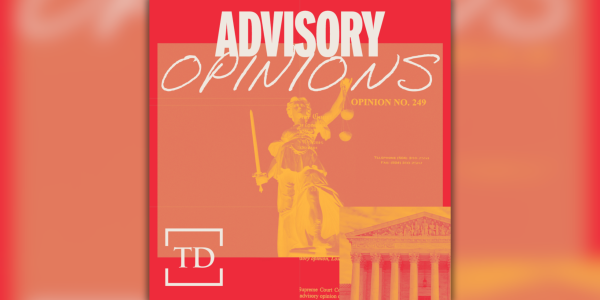Happy Thursday! Voting for the 2025 Webby Awards ends today—be sure to cast a vote for The Dispatch!
Quick Hits: Today’s Top Stories
- El Salvador President Nayib Bukele plans to double the capacity of the country’s maximum-security prison—the Terrorism Confinement Center, or CECOT—the Wall Street Journal reported on Wednesday. Bukele reportedly informed Homeland Security Secretary Kristi Noem of his plans last month during her visit to the complex, which currently houses more than 250 deportees from the United States. President Donald Trump has also alluded to the possibility of detaining American citizens convicted of violent crimes in the Central American country. During an Oval Office meeting on Monday, Trump told Bukele that he will “have to build five more places” to house them, because the current space is “not big enough.”
- Cody Balmer—the 38-year-old man charged with attempted murder for an arson attack on the home of Pennsylvania Gov. Josh Shapiro while his family was visiting for Passover—told police he opposed Shapiro’s supposed “plans for what he wants to do to the Palestinian people,” according to a search warrant released on Wednesday. About 50 minutes after police were notified of the fire at the Democratic governor’s home on Sunday morning, Balmer called a 911 dispatcher and said he wanted to “stop having my friends killed” and that “our people have been put through too much by that monster.” Balmer’s mother told CBS News earlier this week that he was “mentally ill” and had recently stopped taking his medication.
- U.S. District Court Judge James Boasberg threatened on Wednesday to begin contempt proceedings against the Trump administration for what he called its “willful disregard” of his order last month prohibiting the government from deporting alleged Venezuelan gang members to El Salvador under the Alien Enemies Act. “The court does not reach such conclusions lightly or hastily,” he wrote in the 46-page ruling. “Indeed, it has given defendants ample opportunity to explain their actions. None of their responses has been satisfactory.” The Justice Department, under the umbrella of the executive branch, is generally responsible for prosecuting contempt of federal court. If the department declines to prosecute the case, Boasberg said the court would appoint another attorney to do so.
- The Justice Department on Tuesday sued Maine’s Department of Education over its policy allowing transgender individuals to participate in women’s school sports. The Trump administration argued in its lawsuit that Maine’s policy ran afoul of Title IX, which prohibits sex-based discrimination for entities receiving federal funding. In February, Trump signed an executive order requiring schools to bar transgender athletes from competing in women’s sports or face the withdrawal of their federal funding. Maine is “openly and defiantly flouting federal anti-discrimination law by enforcing policies that require girls to compete against boys in athletic competitions designated exclusively for girls,” the administration’s lawsuit alleged.
- The Pentagon on Wednesday placed a third official—Colin Carroll, the chief of staff to Deputy Defense Secretary Stephen Feinberg—on leave amid an investigation into leaks of sensitive information from the department. His suspension came a day after two other political appointees, including a top adviser to Defense Secretary Pete Hegseth, were reportedly escorted from the building. An unnamed defense official told Politico the leaked information concerned military operation strategies for the Panama Canal, a U.S. aircraft carrier’s movement to the Red Sea, and Elon Musk’s planned briefing on China last month.
- The Internal Revenue Service is considering whether to rescind Harvard University’s tax-exempt status, multiple outlets reported Wednesday. The deliberations followed Harvard’s Monday announcement that it would not comply with the Trump administration’s demands that it make significant reforms, which the administration says are intended to address antisemitism on campus. On Monday, the White House announced plans to freeze more than $2 billion in multi-year grants to the Ivy League university.
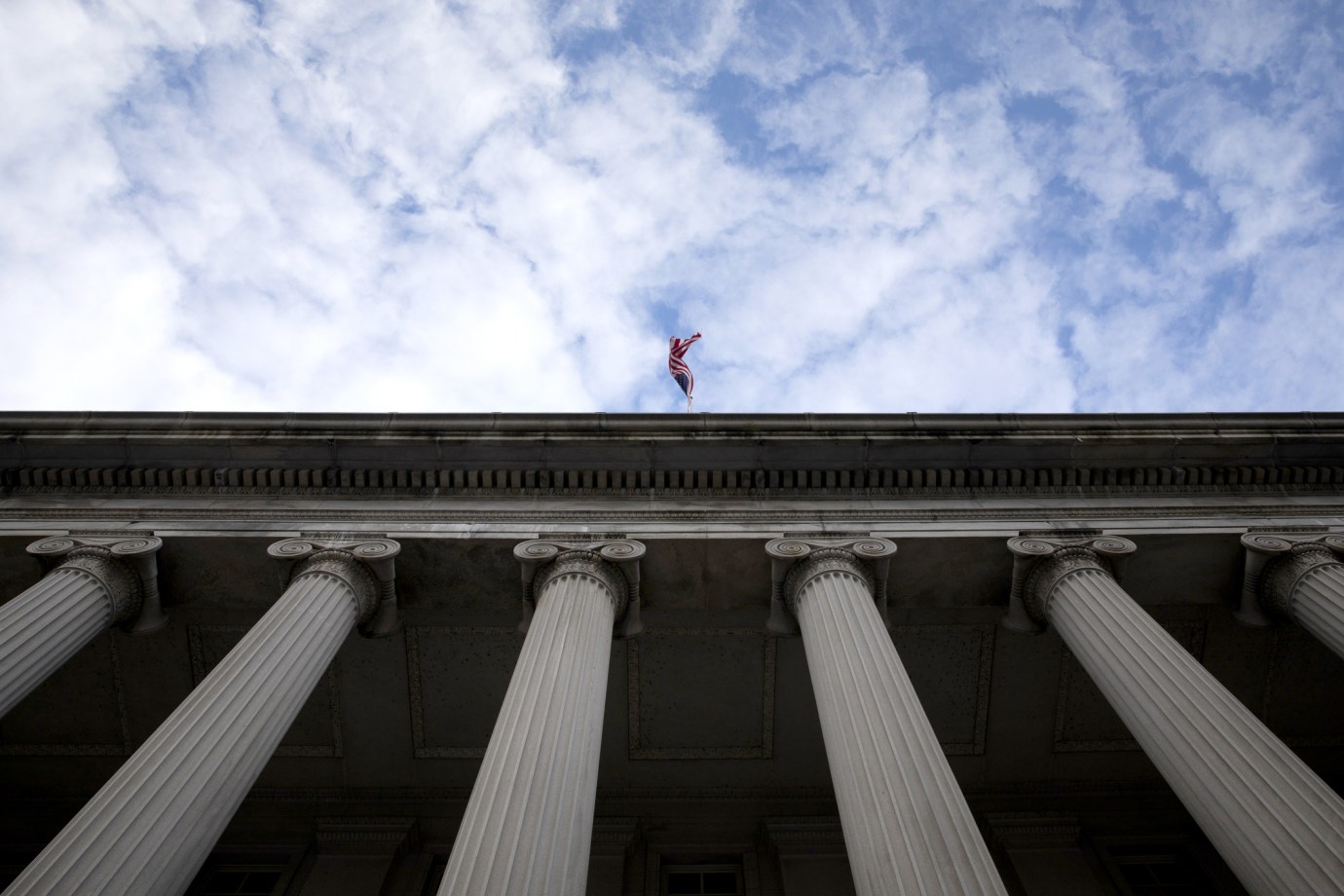
It might be easy to assume that when President Donald Trump partially backtracked on his sweeping tariffs rollout earlier this month by announcing a 90-day pause on most of his “reciprocal” duties, he had been spooked by the precipitous decline in the stock market. But Trump was reportedly persuaded—at least in part—to retreat from his initial plan by the large-scale sell-off of another financial asset: U.S. Treasury bonds.
In the week after “Liberation Day,” the Treasury market experienced some of its most volatile trading days in decades, rivaled only by the “dash for cash” at the start of the COVID pandemic in 2020. On Tuesday, April 1—the day before Trump’s “Liberation Day” announcement of sweeping tariffs—Treasury bonds traded with a yield of 4.17 percent. By the close of April 4, they were down to 4.01 percent, then reached as high as 4.48 percent on April 11 (after Trump’s pause).
These were ominous warning signs: While short-term chaos may have been due to relatively specific market factors, they may also signal that investors are reconsidering the U.S. Treasury’s historic place as a bastion of stability during otherwise turbulent economic times.
In recent decades, bond yields—the effective rate of return based on a bond’s market price—have inversely correlated with stock prices. If the economy’s outlook worsens and stock prices fall, historically, investors have piled into the market for U.S. government bonds, specifically longer-term 10-year Treasury bonds. In essence, they trade the higher upside of stocks for the safer bet of bonds, driving the price of each bond issuance higher and the yield lower.
But over the past few weeks, many investors began to see U.S. government bonds in a different light. A curious phenomenon rippled through financial markets: stock prices fell, and the price of U.S. government bonds also dropped, driving yields up.
The swing meant that instead of seeking safety in the usually reliable arms of the U.S. federal government, investors were rapidly selling their bond holdings. Many commentators quickly proclaimed that this was a sign of a pending U.S. economic crack-up. The popular economic writer Noah Smith wrote that the U.S. was experiencing capital flight and ran the risk of being treated like a “developing country” rather than a relatively safe destination for foreign investment.
The yields for the German 10-year Bund and French 10-year bonds declined, a sign that investors were shifting money from the U.S. to other Western countries that they saw as more reliable. One factor “could be that foreign banks are seeing that the United States is really not a reliable partner,” Desmond Lachman, a senior fellow at the American Enterprise Institute and a former deputy director at the International Monetary Fund, told TMD. The lack of foreign “customers” for U.S. bonds would put pressure on bond prices, he noted.
But the trend of capital leaving the U.S. did not continue for long. By Wednesday of this week, the 10-year Treasury rate had gone back down to 4.29 percent, a less alarming number. Analysts who spoke to TMD emphasized that while long-term concerns about the U.S. economy may be valid, much of the chaos in past weeks is a function of specific strategies taken by many major hedge funds rather than a full-on flight from the U.S. economy.
Hedge funds often take a long-term position, like buying a 10-year U.S. bond using borrowed money, often referred to as a “leveraged position.” When bond market volatility kicked in, many funds were forced to cut their losses, “unwinding” their position by selling off their bonds and raising yields. The worry motivating Treasury Secretary Scott Bessent—and eventually Trump as well—was that a shortage of liquidity in the bond market would lead to a financial crisis. “The hedge funds got caught offside,” Lachman said.
Trump’s tariff walkback has largely forestalled those fears—for now. The 10-year bond rate peaked in the days following the administration’s backpedal, but has declined somewhat in recent days. Heated claims that the U.S. has become a deeply dysfunctional economy overnight are somewhat overstated, said Luis Alvarado, global fixed income strategist at the Wells Fargo Investment Institute. “From a pure investment standpoint, I would say that the U.S. remains the best bet,” he told TMD, pointing to the nation’s large pool of wealthy consumers. “I think investors in general still feel that the U.S. economy is solid. They still like the U.S. consumer market.”
But the bond market’s recent performance may be a sign of more stormy weather ahead for the U.S. economy, even if a financial meltdown is not imminent. And even if many Americans are tempted to dismiss hedge funds’ backpedaling as an issue for Wall Street, the American economy has a clear interest in maintaining a well-functioning bond market. Unstable bond markets can cause the benchmark Treasury rate to swing unpredictably, destabilizing consumer financial products. And if yields rise, the U.S. government will find it increasingly difficult to borrow money at tolerable rates.
Beyond short-term issues of market governance, the basic faith of investors in the U.S. government as a safe long-term bet has also been shaken, even if it is still fairly far from being shattered. “We’ve got enormous macro problems that are not necessarily about any kind of [financial market] plumbing,” Jeremy Stein, a professor of economics at Harvard University and a former Federal Reserve governor, told TMD. “You can get distracted by focusing on that too much.”
Not least is the problem that once Trump managed to calm financial markets with the announcement of a 90-day tariff pause, he pulled a lever that is difficult to use twice. And it’s extremely unlikely that there will be no bumps on the 90-day road to “clarity” that Bessent promised in a Wednesday interview. The Treasury secretary has already backed off from claims that the White House will be able to make 90 trade deals in 90 days, for example. And the Chinese government has shown no sign of capitulating in the opening phases of its trade war against the United States. “We do expect continued volatility,” Alvarado said.
And tariffs aren’t the only looming inflationary threat on the horizon. While its exact contours remain hotly debated among Republicans, the budget expected to be passed by early fall will almost certainly contain billions of dollars of unfunded tax cuts. As with former President Joe Biden’s American Rescue Plan, pumping money into a growing economy without corresponding spending cuts is likely to raise prices.
While the extent of foreign countries’ role in recent Treasury sell-offs remains largely opaque, there are signs that it was not insignificant. The WSJ Dollar Index, which measures the dollar’s value against other currencies, is down roughly 3.7 percent since April 2—a sharp decline. Other currencies like the euro have strengthened, a sign that there is at least some truth to the claim that the U.S. is losing its privileged position as the safest destination for foreign capital.
The White House has looked to push back against that narrative. “I don’t think there’s [foreign investor] dumping,” Bessent told Bloomberg News on Tuesday. He pointed out that demand for U.S. 10- and 30-year bonds was healthy at last week’s installment of the regular auction held for investors in Treasuries.
Warnings of a complete meltdown may have been overblown. But investors are beginning to question whether the U.S. government, and the bonds it issues, are the safe harbor they once were, Alvarado noted: “This sort of asset is no longer risk-free.”
Today’s Must-Read
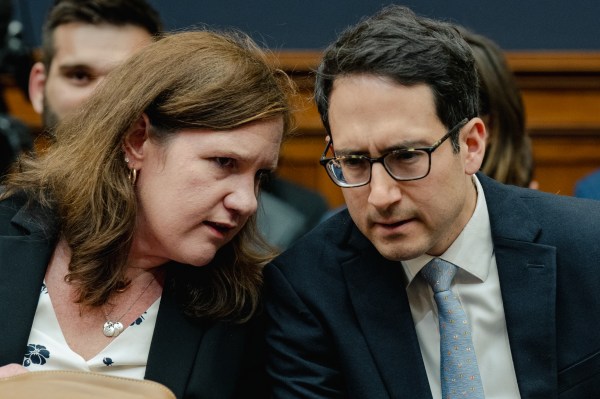
Democrats: Trump’s Executive Actions a Crisis, Not an Example
Commentators have warned that if President Donald Trump goes too far in exerting his control, then it will be easier for the next Democrat in the White House to justify similar actions, creating policies Republicans no doubt will disapprove of. Still, with fewer than 100 hundred days having passed since Trump’s second term began, the messaging campaign employed by Democrats against the president’s actions centers on promising a return to order, not tit-for-tat retribution. Sen. Chris Murphy of Connecticut argued that Trump’s often chaotic concentration of power will help his party retake control of the federal government.
Toeing the Company Line
Worth Your Time
- Criminals are quickly adopting cutting-edge technology to entrap victims and carry out attacks. Can law enforcement keep up? In City Journal, Laura Huey, Lorna Ferguson, and Cole Heffren proposed solutions to the growing technological deficit. “On New Year’s morning, American citizens awoke to news of another mass-casualty terror attack. Using a rented a pick-up truck, a man plowed through revellers on New Orleans’s Bourbon Street, killing 14 and wounding at least 57 others. This was no crude act of vehicular terrorism: the attacker employed smart glasses to reconnoiter the area before striking. He had wired his vehicle with improvised explosive devices (IEDs), and strategically planted additional bombs across the neighborhood. The materials used were not black-market contraband but commercially available technology, repurposed for destruction,” they wrote. “To counteract malevolent innovation, policing must become anticipatory rather than reactionary. Foresight exercises—simulating future crime trends—should become standard practice. Law enforcement must forge closer partnerships with tech firms, to mitigate emerging threats; and with researchers, to predict, forecast, and identify practices and policies to address them. Legislative bodies must consider proactive regulation of technologies prone to misuse. And crucially, police forces must accelerate their decision-making processes.”
CNBC: [Federal Reserve Chairman Jerome] Powell Indicates Tariffs Could Pose A Challenge For The Fed Between Controlling Inflation And Boosting Growth
“We may find ourselves in the challenging scenario in which our dual-mandate goals are in tension,” Powell said in prepared remarks before the Economic Club of Chicago. “If that were to occur, we would consider how far the economy is from each goal, and the potentially different time horizons over which those respective gaps would be anticipated to close.”
…
In a question-and-answer session after his speech, Powell said tariffs are “likely to move us further away from our goals … probably for the balance of this year.”
Politico: Vladimir Putin Lauds Elon Musk as Rare Pioneer
In the Zeitgeist
Billy update! After being rescued from southern Gaza by an Israeli reservist last week, the Cavalier King Charles spaniel who was abducted from Nahal Oz during Hamas’ October 7, 2023, attack was reunited with her family yesterday.
Let Us Know
What’s your personal outlook on the state of the U.S. economy going forward? Are you bullish, bearish, or something else?


